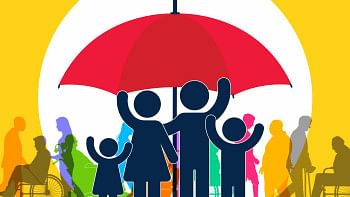Mix of Cold War legacy, politics?

Before most Americans had heard of Devyani Khobragade, Indian officials were already giving the world's superpower a good drubbing.
Politicians from left and right refused to meet with a visiting US congressional delegation in New Delhi as uproar over the Indian diplomat's arrest and strip search consumed all of India.
Here's what Narendra Modi, a leader from the opposition Bharatiya Janata Party, tweeted:
"Refused to meet the visiting USA delegation in solidarity with our nation, protesting ill-treatment meted to our lady diplomat in USA."
So how is it that one diplomat's troubles resulted in a massive international row between the world's most populous democracy and its most powerful one? Why is the arrest of one woman threatening to seriously damage warm relations between the two allies?
"There is a lot of protest in India. I personally believe they are politically motivated," Aseem Chhabra, a columnist for Mumbai Mirror newspaper, told CNN. "We have elections coming up in May."
Chhabra pointed to the refusal to meet with the US delegation as political grandstanding.
However, Indian External Affairs Minister Salman Khurshid told parliament that there were larger issues at stake.
"It is no longer about an individual. It is about our sense of self as a nation and our place in the world," he said to usually bickering politicians who have displayed rare unity on this incident.
Devyani, India's deputy consul general in New York, was arrested and strip-searched last week on charges of visa fraud related to her treatment of maid and nanny Sangeeta Richard.
India claims US marshals overstepped their bounds in their treatment of a diplomat.
Indian officials retaliated quickly by removing security barriers outside the US Embassy in Delhi and revoking diplomatic identification cards. People took to the streets to protest what they perceived as American bullying.
This is not the first time an Indian official has had an encounter with American law. In recent years, former President APJ Abdul Kalam was told to remove his shoes at airport security. Indian Ambassador Meera Shanker got a pat-down, and India's permanent representative to the United Nations, Hardeep Puri, was detained after he refused to take off his turban, also at an airport.
Not much was made of those incidents. But this time things have changed.India, as it becomes a superpower itself, has made its statement clear; treat India equally.
India had been at odds with the US since the days following independence in 1947 and the country's formation of a strong alliance with the Soviet Union.
"There's a Cold War legacy when India was at odds with the United States over a range of issues," said political scientist Sumit Ganguly.
The Cold War residue surfaces from time to time. And this seems to be one of those times -- when that particular message is playing well.
In the meantime, global observers worry about the widened rift between India and the United States.
Nicholas Burns, former US undersecretary for political affairs, considers India one of American's most important allies.
"Hopefully this can be diffused so we can go back to working on the very important issues on our agenda," he said.

 For all latest news, follow The Daily Star's Google News channel.
For all latest news, follow The Daily Star's Google News channel. 



Comments